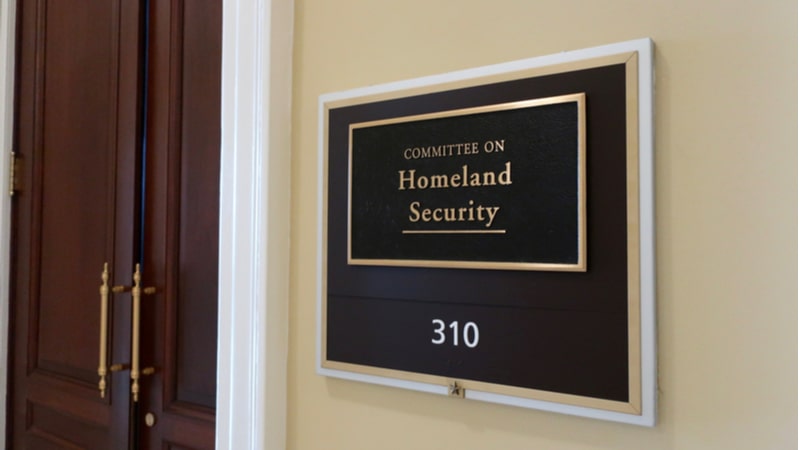
Harry Coker – President Biden’s pick to serve as the nation’s second-ever permanent National Cyber Director (NCD) – sailed through his first Senate nomination hearing today with little to no opposition from lawmakers. Coker pledged that the workforce would be his top priority if confirmed to the chief cyber position.
President Biden nominated Coker for the White House position in July after the inaugural NCD Chris Inglis stepped down from the role in February.
Kemba Walden is currently serving as the acting director at Office of the National Cyber Director (OCND), but withdrew her name from consideration for the permanent position. Walden continues in the acting position currently.
“I have proudly served our nation for over four decades in the military and as a civil servant. And although it was not called cyber when I first became interested as a high schooler in Parsons, Kansas, by the time I graduated from the United States Naval Academy, I recognized the importance of what is now known as cyberspace,” Coker said during his testimony in front of the Senate Homeland Security and Governmental Affairs Committee today.
“I worked at the intersection of technology and national security for the next 20 years, while serving our nation in uniform as a naval officer. I continued this work in a different capacity spending another two decades as a civil servant and senior leader in both the Central Intelligence Agency and the National Security Agency,” Coker added. “Since retiring from government service in 2019, I have continued focusing on the challenges our nation faces in cyberspace by supporting organizations that prepare for and respond to evolving cyber threats.”
Coker served as the executive director of NSA from 2017 to 2019 and previously served as the director of open source enterprise in the CIA’s Directorate of Digital Innovation. He also served in the U.S. Navy for 20 years in several positions, including as a surface warfare officer at sea, an engineering duty officer, and in various posts in the Intelligence Community.
The Biden administration’s recent National Cybersecurity Strategy (NCS) and National Cyber Workforce and Education Strategy (NCWES) took center stage at today’s nomination hearing.
If confirmed, Coker would be tasked with continuing Walden’s work on the NCS and its respective implementation plan – which outlines 69 high-impact initiatives tasked to Federal agencies – as well as the NCWES and its forthcoming implementation document.
Coker recognized that the key to implementing the NCS is a robust cyber workforce.
“What I think is most important, not just professionally but personally, [is] people,” Coker said. “And the [National Cyber Workforce and Education] Strategy is all about getting the right people with the proper development to address the hard problems that our nation faces – in this case it’s cybersecurity. If confirmed … I would continue the good work that ONCD has done with his partners.”
Specifically, Coker said he would “tackle this challenge head on” and recognize that it’s a “whole of nation challenge” and focus on getting the right involvement with the private sector, but also other key actors like state, local, Tribal, and territorial (SLTT) governments.
Coker said that if confirmed he would drive to the SLTT levels to ensure two things; firstly, that ONCD is working in close partnership with SLTTs to transform cyber education.
“We need to increase the cyber skills of all Americans,” Coker continued, “regardless of interest in STEM. And we need to transform cyber education. And that’s why it’s important that we have such a strong partnership with state and local governments. This is a challenge, whole of nation, but it’s going to be the state and local governments that have to lead that for NCD.”
Secondly, Coker emphasized that “we need to change the way we look at vacancy notices, job questionnaires. In cyber, it should not be a requirement for everyone to have a four-year degree … We need to deliver that message broadly and deeply.”
Coker also expressed the importance of partnerships, pledging to uphold ONCD’s legacy of collaborating across the Federal government and industry to bolster the nation’s cyber defenses.
“I’ve seen the need for stronger partnerships and collaboration between the public and private sectors and if confirmed, I will continue to ensure that collaboration is the North Star at the Office of the National Cyber Director and the guiding principle for the administration’s cyber work with all partners, including Congress,” Coker said. “The challenges we face in cyber are both broad in scope and dynamic there’s a proliferation of persistent and capable threat actors from nation states and criminal organizations that regularly target our schools, hospitals, cities, and businesses.”
“The solutions cannot be about any one entity or even just the Federal government. Taking action in the face of these challenges requires working together to improve our cybersecurity posture. I am prepared to take on these challenges,” Coker said. “If confirmed, I will work with interagency colleagues, the private sector, Congress, and many others to help foster a digital ecosystem that is inherently more defensible, resilient, and aligned with our values.”
